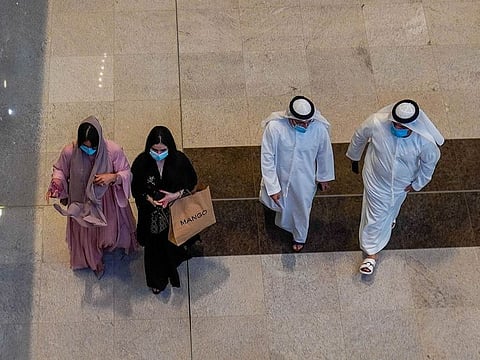Emaar Properties gets a Dubai Mall-sized lift to bottom-line after merger move
Gulf businesses and investors primed for more M&A activity in post-COVID-19 landscape

Dubai: It pays to have The Dubai Mall directly on your books. All 500,000 plus square metres of retail area that the mall encompasses.
That’s exactly what Emaar Properties will get back as soon as its shareholders as well as those of Emaar Malls give the signal for the merger to go ahead. It was late on Tuesday (March 2) that one of the region’s biggest developer confirmed plans to bring the mall and retail unit back into its fold.
It was in 2014 that Emaar Malls was listed on the local stock market. At the time it was felt that a standalone entity would drive higher growth and shareholder returns.
Emaar Properties derives the bulk of its current revenues from its pipeline of offplan residential projects, the bulk of which in Dubai.
Why bring it back
Emaar listed multiple reasons for the move, including reinforcing its status as a fully integrated developer. But just as important, the Dubai Mall and other retail assets under Emaar Malls will provide the parent company with ample “recurring revenues” from all of the units leased out.
The Emaar statement issued had this to say: “… further reduce volatility through an increase in the proportion of earnings from recurring businesses.”
And “enhance Emaar Properties’ standing in regional capital markets and increase its stock liquidity on the Dubai Financial Market, while maintaining inclusion in international equity indices.”
For 2020, Emaar Malls recorded net profits of Dh703.6 million. While that’s a significant comedown from the Dh2.27 billion of 2019, it must be seen in the context of what COVID-19 did in the second quarter of last year.
Shareholders' thumbs up
Emaar Properties and Emaar Malls shareholders seem to be all in favour of the merger play. On Wednesday morning, both stocks were gaining, Emaar Malls by 6.5 per cent and Emaar Properties by 2.75 per cent. "The merger will set off a spike in interest in Emaar shares," said Vijay Valecha of Century Financial. "The merged entity will attract more interest from institutional investors."
Online too
Emaar Malls currently operates four malls and 32 community centres, which together made up 6.7 million square feet of retail space. But that’s not the only game it’s into.
“The e-commerce division is growing rapidly and accounts for almost one-third of its revenue,” said Vijay Valecha, Chief Investment Officer at Century Financial. “Moreover, Emaar Malls is expected to see a sharp bounce back in business as normalcy returns.
“Emaar Malls’ average stock trading volume for the last 15 days was 5.16 million, and on March 1, it had spiked to 8.80 million. The merged entity will attract more interest from institutional investors as it is a play on the Dubai economy and real estate sector.
“The deal will be beneficial for Emaar Malls’ shareholders as it brings more clarity on the governance side. The combined entity can plan the real estate supply for Dubai better. Emaar Malls is highly leveraged with EBITDA-to-interest ratio of 9.27, whereas Emaar Properties is relatively better at 5.51.”
Sign of the times
The deal – and it should clear shareholder approvals easily – is also happening at a time when “consolidation” is the message being delivered in the UAE and the wider Gulf. The other big Dubai master-developer, Meraas, is closing on full ownership of DFM-listed DXB Entertainments, the theme park operator.
In the recent past, Hussain Sajwani of Damac Properties has hinted at the possibility of taking the listed company back to privately owned status.
In Abu Dhabi, TAQA (Abu Dhabi National Energy Company) and ADPower combined last year to create one of the region's biggest utility companies - and with one of the highest market caps on the UAE stock market. The emirate's food and beverages group Agthia has also seen some consolidation - and new buys - happen in the recent past.
And in Saudi Arabia, April 1 will see the launch of ‘Saudi National Bank’, formed from the coming together of National Commercial Bank and Samba. It will create the Kingdom’s largest bank with a marketshare of 30 per cent.
Expect more of the same
“The current marketplace has opportunities for balanced price point transactions,” said Abdul Moiz Khan of Fursa Consulting. “Corporate mergers will pick up and bring about the required increase in financial and operational performance.
“This will also reduce volatility through an increase in the proportion of earnings from recurring income. For banks and other lenders, the consolidation brings about optimum risk/return financing avenues.”
The era of spin-offs could be coming to an end in the Gulf… and consolidation is all set to take its place.
Sign up for the Daily Briefing
Get the latest news and updates straight to your inbox







